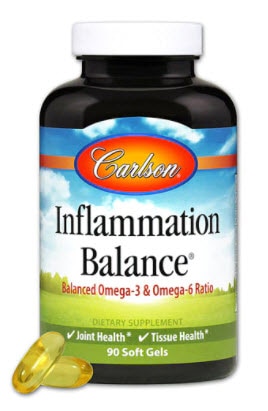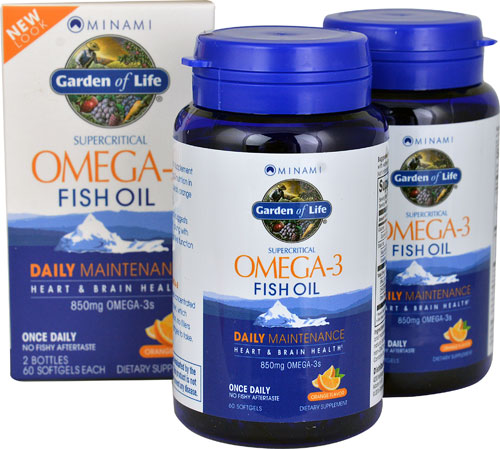Although inflammation is a current buzzword in medicine, many people are confused about the nature of
inflammation. Most people visualize inflammation through external signs: swelling, bruising, redness etc. But inflammation is also invisible to the naked eye, and it plays a role in almost every major disease, including
cancer,
heart disease,
diabetes, Alzheimer’s disease and even depression.

That’s why when a patient asked me the other day, “You say that staying in optimal health is all about mitigating inflammation, but what exactly does that mean?,” I thought it would be useful to share my experience and knowledge about how inflammation presents—and what to be on the lookout for.
What is inflammation?
On the one hand, inflammation is a Godsend. It’s the wisdom of our bodies’ response to a virus, bacteria or wound to help us remove an offending agent and heal. So when is inflammation a good thing, and when does inflammation actually harm us? It appears that just the right amount of inflammation serves us.Too much of a good thing, however, can be detrimental to our health and wellness.
For instance, if you cut your arm on a branch, your body immediately sends out immune cells to fight off any potential infection and to support the knitting back together of your skin. This is acute inflammation, of a short (usually two weeks) duration, and considered a healthy immune response. There are some critical cells that activate different aspects of your immune system so that over the next few days to weeks, depending on how deep the cut was, your skin can literally heal itself without much intervention on your part except to keep the area clean and protect it from being reinjured. The same is true for when you have an upper respiratory infection, the wisdom of your immune system sends out cells to fight off the virus or bacteria, helping your body resolve the infection.
However, inflammation can be a bad thing when immune cells that normally fight off infection stay in high gear long after the infectious agent has been cleared. This occurs in a dysregulated immune system and can become chronic.
When people don’t have good immune-regulation, their immune cells can actually start to attack their own healthy cells. This phenomenon can lead to autoimmune diseases where the immune system attacks a person’s own connective tissue like systemic lupus or rheumatoid arthritis. Or an on-going smoldering inflammation can lead a person to develop chronic diseases such as heart disease or increased the risk of cancer.
So what causes your immune system to stay in high gear and not shut off, your body forced to endure a prolonged state of emergency? According to the National Center for Biotechnology Information, the following triggers can contribute.
What causes inflammation?
Age: As you age, you naturally garner elevated levels of several inflammatory molecules. This may be due to mitochondrial (mitochondria generate the energy that powers a cellular response) dysfunction or free radical (unstable molecules bent on damage) accumulation over time. Aging also tends to be paired with an increase in visceral body fat, which can trigger inflammation.
Obesity: An excess of body fat contributes to inflammation because fat cells actually release certain immune compounds called cytokines into the person’s body that promote inflammation. Some cytokines in the body are friendly and some are unfriendly, unfortunately, excess body fat will release more of the unfriendly cytokines than a thinner person would typically have.
Over the past year and throughout the
pandemic, we have all been hearing how obesity is a co-morbidity and puts a person at a higher risk of severe complication from Covid-19 infection. This is because obese people have more chronic inflammatory cytokines in their system and when their immune systems go into high gear to fight the viral infection, these inflammatory compounds can create a “storm,” leading to more severe Covid-19 symptoms and injury to the lung tissue.
Diet: A low nutrient diet coupled with poor quality food that is high in sugar, saturated animal fats and chemicals is associated with higher production of pro-inflammatory molecules, especially in individuals with diabetes or obesity. In contrast, eating high quality foods rich in phytonutrients like
antioxidants and bioflavonoids, can help mitigate on-going inflammation.
Smoking: Cigarette smoking creates a huge toxic burden on the body and is associated with inducing inflammation and lowering the production of anti-inflammatory molecules.
Imbalanced sex hormones: Studies show that sex hormones like testosterone and
estrogen can suppress the production and secretion of several pro-inflammatory markers. Maintaining sex hormone levels, or at least keeping them in balance, through diet, exercise, sleep and
managing stress, can reduce the risk of several inflammatory diseases. In contrast, too much testosterone or estrogen can also be detrimental to health. Hormonal balance is the key here to promoting health and wellness.
Stress and sleep disorders: Whether you describe your stress as emotional or physical, it’s, you guessed it, associated with increased inflammatory cytokine release. Stress can also be at the root of many sleep disorders. Since individuals with irregular sleep schedules are more likely to have chronic inflammation than consistent sleepers, sleep disorders are also considered as one of the independent risk factors for chronic inflammation.
Inflammation symptoms to watch for
Chronic inflammation occurs even when there’s no precipitating injury, and it doesn’t always end when the illness or injury is healed. Here are some chronic inflammation signs to watch for:
Fatigue
Being tired all the time, even when you first wake up, could be a warning sign that your body is expending too much energy on an inflammatory response.
Digestive problems
Diarrhea, constipation or bloating—especially for long periods—could be a sign that your gut lining is inflamed. New research has found that the gut
microbiome plays a huge role in whether you have unmitigated inflammation or not. By eating a healthy diet and shifting your gut bacteria, you can help change your inflammatory response from one that is dysregulated and always "on," to one that responds appropriately, takes care of the offending agent and then shuts off.
Aches and pains, especially in the joints
Most inflammatory conditions come with mild to moderate pain. Some patients experience pain in their soft tissues, like in the condition fibromyalgia. Others can have pain in one or more joints which can also be an indicator of
chronic inflammation or an autoimmune diseases.
Skin rashes
Skin rashes can be a symptom of chronic inflammation in the body and may indicate some autoimmune inflammatory conditions. There is often a connection between
what is happening in the gut and what appears on the skin. Investigating food allergies and leaky gut issues, and creating a healthy intestinal biome, can help many people heal from skin rashes like eczema. Other skin rashes can be due to a dysregulated immune system resulting in an autoimmune disease - this occurs when your body’s immune system attacks healthy cells within the body. Autoimmune conditions may cause a rash because they trigger inflammation in skin cells.
Depression, anxiety and mood disorders
Chronic psychological stress is linked to greater risk for depression and heart disease. In one
study, PET scans showed significant inflammation in the brains of the people with depression, and the inflammation was most severe among the participants with the most severe depression. The brains of people who experienced clinical depression exhibited an inflammatory increase of 30 percent. If you want to explore a stress reduction technique, yoga and meditation are helpful in alleviating stress-induced inflammation and its harmful effects on the body.
As you can see, your whole body is connected. So yes, your thigh bone does in fact connect to your elbow. If you have on-going fatigue, pain or other chronic symptoms, it may be part of a bigger picture. The good news is that you can mitigate chronic inflammation and regulate your immune system through simple lifestyle changes, such as eating a
healthy anti-inflammatory diet, getting enough sleep and exercise, removing toxins from your body and environment, and making healthy choices that support you psychologically and emotionally.
Featured product

 That’s why when a patient asked me the other day, “You say that staying in optimal health is all about mitigating inflammation, but what exactly does that mean?,” I thought it would be useful to share my experience and knowledge about how inflammation presents—and what to be on the lookout for.
That’s why when a patient asked me the other day, “You say that staying in optimal health is all about mitigating inflammation, but what exactly does that mean?,” I thought it would be useful to share my experience and knowledge about how inflammation presents—and what to be on the lookout for.




